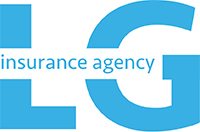 An injury to an employee can be difficult for a business to manage, especially a small business. While worker’s compensation insurance will help pay medical costs and replace the injured employee’s lost income, your business will have to absorb costs associated with reduced productivity, overtime, and training replacements.
An injury to an employee can be difficult for a business to manage, especially a small business. While worker’s compensation insurance will help pay medical costs and replace the injured employee’s lost income, your business will have to absorb costs associated with reduced productivity, overtime, and training replacements.
The best way to minimize the hidden costs of workplace injuries and related insurance costs is to prevent accidents from happening. Follow these steps from iii.com and consider developing a formal, comprehensive workplace safety program to help reduce the risk of injury:
- Engage Management and Employees—Businesses are most successful improving workplace safety when leadership and employees collaborate. Responsibility for workplace safety should be part of everyone’s job, and specific employees and managers should be tasked with implementing, maintaining and improving workplace safety program components.
- Analyze Your Workplace and Operations—Evaluate your business from top to bottom. Review your equipment as well as all workplace activities. As part of your evaluation, talk to your employees to learn their safety concerns. Whenever you add new operations, equipment or facilities to your business, analyze these for risks as well.
- Mitigate Hazards—Simply identifying and being aware of hazardous practices, equipment and infrastructure is not enough. When hazards are identified, you should seek to remove or control them by replacing or fixing equipment, adding new safety measures or changing workplace operations.
- Implement Training—Train employees about workplace safety and how to identify hazards. Include workplace safety training as part of employee onboarding and offer refresher training on a regular basis. In addition to injury prevention training, you may want to include first-aid training so that your workforce can respond effectively if an accident does occur.
- Review, Respond and Improve—Promoting workplace safety is an ongoing process. You should review and improve your program—especially in response to accidents or “near misses.” Employees should always be encouraged to report newly identified hazards or workplace incidents so that you can respond appropriately.
Workplace safety programs provide additional benefits beyond preventing accidents. These programs have been found to increase employee morale, retention and productivity.
What Workers Compensation Covers
Unfortunately, accidents and injuries do happen. Following the steps above can help reduce workplace injuries, but the risk cannot be completely eliminated. Your company will need workers compensation insurance.
A workers compensation insurance claim can be filed if an employee is injured at your workplace or while on the job at another location. A claim can also be filed if a worker is injured in a vehicle accident while on business. Costs are also covered for employees that develop work-related illnesses. Your workers compensation insurance will cover:
- Income Benefits–Replaces a portion of an employee’s salary when work is missed.
- Medical and Rehabilitation Costs—Pays necessary medical care to treat work-related injuries or illness.
- Funeral Expenses—In the case of death, funeral and related expenses such as burial or cremation are covered.
- Death Benefits—Paid to a surviving spouse and dependents.
What It Doesn’t Cover
While workers compensation covers costs directly tied to an injured employee, it does not cover the hidden costs associated with the loss of an employee, including:
- Business interruption losses.
- Hiring and training of employees.
- Overtime costs.
Workers compensation must be purchased as a stand-alone policy. This type of coverage is not included in Commercial Package Policies (CPPs) or Business Owners Policies (BOPs).
Workers Compensation Insurance is an essential part of your business coverage. LG Insurance Agency is your local Jersey Shore Commercial Insurance specialist, working for you and your business. Contact us for more information and a free quote.
All content provided in this blog is for informational purposes only. Topics discussed on this blog relate to insurance products and issues in a general application, and are not an offer of insurance, a guarantee of coverage, or applicable to specific and individual circumstances. Contact LG Insurance Agency for questions and information specific to your insurance needs.


